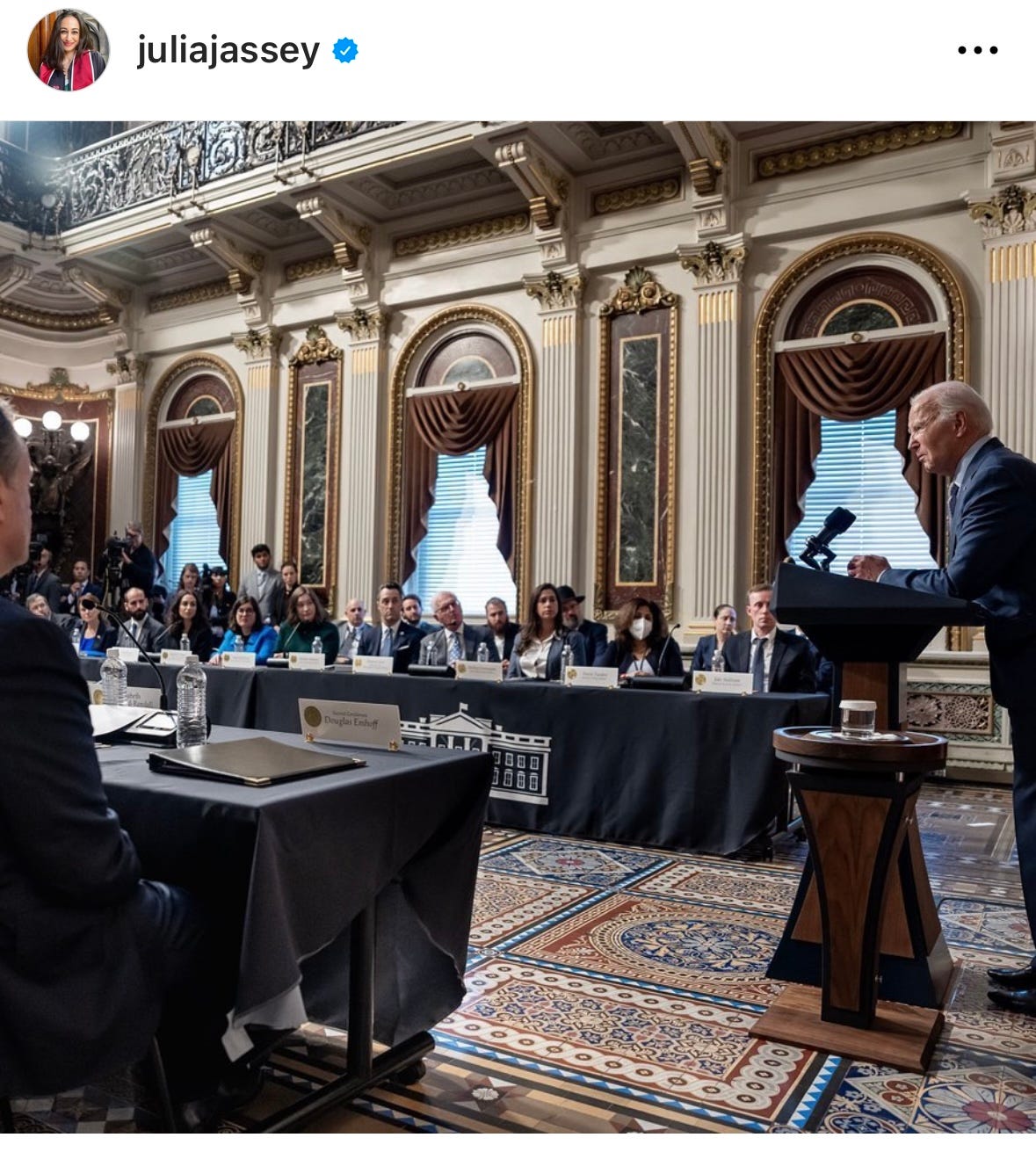‘The campus vibe has definitely gotten worse’
Violent threats against Jewish students at Cornell are the latest in a long line of antisemitic and Islamophobic incidents on college campuses amid the Israel-Hamas war.
In an online chatroom at Cornell Sunday, violent threats were made against Jewish students on campus, prompting an investigation from the Cornell University police, a campus visit from New York Gov. Kathy Hochul, and outcry from the broader Jewish community. The now-deleted posts on ‘Greekrank,’ a website mostly for campus discussion about sororities and fraternities — which included threats to shoot Jewish students at the home for the Center of Jewish Living and the kosher dining hall — are part of a series of antisemitic and Islamophobic incidents on college campuses amid the Israel-Hamas war.
After the incident at Cornell Sunday, Students for Justice in Palestine’s Cornell chapter called out “vile Anti-Semitic and Islamophobic messages that threaten Cornell’s Jewish and Muslim students.” Earlier this month, Harvard Hillel denounced tactics to publicly call out and intimidate Harvard students who signed a statement that blamed Israel for Hamas’ violence. In an October 25th report, the Council on American-Islamic Relations addressed the “targeting of students” that has followed campus activism. Last week at Tulane University, which is 43% Jewish, a pro-Palestinian rally turned violent, resulting in a student’s broken nose. And at George Washington University, students projected anti-Israel messages such as “Glory to our martyrs” onto the facade of the school library.
While there is a legitimate conversation to be had about the actions of the Israeli government and Hamas’ terrorism, Jewish and Muslim students in America should not be held accountable for these actions.
In response to the “alarming” uptick in antisemitic incidents on college campuses, the White House on Monday announced a series of actions the Biden administration is taking to protect students on campuses that includes providing campuses with cybersecurity experts to deal with online antisemitic and Islamophobic activity. The White House is working with the Departments of Homeland Security, Justice, and Education to protect students nationwide.
The on-campus response…
“We’re encouraged by the level of seriousness with which the White House is taking this issue,” Julia Jassey, co-founder and CEO of Jewish on Campus, told The Up and Up.
Jewish on Campus started in 2020 as an Instagram account to spread awareness about the Jewish experience on campuses across the country. The nonprofit organization continues to amplify Jewish voice and combat hate on college campuses and has seen a major uptick in engagement this month.
“The number of submissions we received since October 7 vs. before October 7 are two entirely different beasts,” Jassey said. She’s been key in elevating Jewish students perspectives at the national level for years and was part of a roundtable for Jewish community leaders hosted by President Joe Biden and Second Gentleman Doug Emhoff at the White House on October 11.

According to Jassey, Jewish on Campus works with leaders in its “Student Union,” which communicates via a national Slack channel, to respond to incidents in realtime.
“Cornell was a safety issue and a security threat,” Jassey explained. “When that happens, that’s very different than the incident at GW, where the projections were offensive and frightening, but not a threat to student safety in that moment.”
When it comes to safety scenarios like the one at Cornell, Jassey said, Jewish on Campus works with partners like the Anti-Defamation League to protect students physical safety. With the GW situation, she said, “those are times when it’s a really great example to show to folks who may not understand the difference between antisemitism vs. political conversation, where that conversation is drawn and where that line is.”
The increase in hateful rhetoric toward Jews on campuses couples a 400% rise in antisemitic incidents across the country since October 7, per the ADL, and Islamophobic incidents are surging around the world, too.
“We see time and time again the increased action in the Middle East leads to real impact here. It is important to give space for multiple issues at once. The reality is that antisemitism is growing, the reality is that Islamophobia is growing,” Jassey said.
‘The campus vibe has definitely gotten worse’
After the chaos Sunday, I spoke with two Jewish students at Cornell who shared their experience with the current culture on campus. Since October 7, “the campus vibe has definitely gotten worse,” said Lily Kalish, a 21-year-old senior. In some ways, she said, Jewish students were initially given space to mourn Hamas’ deadly attack. “But as soon as there started to be any retaliatory action from the Israelis, it was immediately misconstrued,” she said.
The violent comments posted to Greekrank Sunday followed a slew of events at Cornell related to Hamas’ attack on Israel. At a pro-Palestinian rally at the Ithaca Commons in mid-October, Cornell professor Russell Rickford said that he was “exhilarated” by Hamas’ actions, the Cornell Daily Sun reported. And in terms of student action, on October 12, nearly 200 students gathered at a student assembly meeting for debate over a resolution drafted by Cornell’s SJP chapter that asked Cornell to “recognize the Palestinian right to resistance and contextualize the violence as a direct response to decades of Israel’s occupation,” according to the Cornell Daily Sun. The resolution was sponsored by two members of Cornell’s SJP and the student assembly LGBTQIA+ liaison-at-large.
Though the resolution failed, Kalish, who spoke out against the resolution at the student assembly meeting, said she felt it, “served to inflame tensions more than they already were.” She added that even if it had passed, it likely would not have achieved its desired goal of getting the administration to “cut all ties from Israel.”
“The only actors that can actually do anything in this situation, in terms of cutting all ties in Israel, condemning Israel, the only people who can do that are the administration,” she explained, adding that the resolution would only “embolden more hateful language… which would just prolong everybody’s pain, suffering, and sadness.”
“It’s one thing to try to condemn the Israeli government, and probably six months ago I’d be right there with them condemning [Bibi] Netanyahu and the coalition,” Kalish said, referring to legitimate criticisms of Israeli politics. “It’s another to try to justify the deaths of innocent Israelis, and then the antisemitism goes to saying we need to kill Jews everywhere,” she added. “As if me and your fellow students have anything to do with [Israel’s] actions and what’s going on there. It’s just ridiculous and it’s scary that hate can be so strong like that and persist after so many years.”
Kalish works in an on-campus coffee shop and said she can’t help but wonder how her peers feel about her.
“Do you hate me? Are you secretly holding these beliefs that you want to kill me?," she asks herself while serving Cornellians coffee.
Meanwhile, Eli Goodwin, a 20-year-old junior who also spoke at the student assembly meeting and is a student in Professor Rickford’s African American history class, said that while he fully recognizes Palestinian suffering and agrees this should be addressed, he had “misgivings about the wording of the bill,” especially when it comes to “really divisive language.” He also worried that members of the student assembly who understand the “incredibly necessary, pertinent need to acknowledge Palestinian suffering,” would “unwittingly” sign onto the rest of the bill — which included components they may not have understood as well.
Goodwin, who is bisexual, he said he understands why the LGBTQIA + student liaison might resonate with the plight of Palestinians, giving that “the link between the LGBTQ movement and the Palestinian movement is underscored by both groups of people having legitimate desires for liberation.” And yet, he said, “It was a bit stinging to think that someone meant to represent the interest of an affinity group on campus was signing onto a bill that denounced Zionism and the existence of the bastion of gay rights in the Middle East, especially compared to its neighbors.”
“There isn’t as complete an understanding of the Jewish struggle, or the Jewish presence in the land that begins well before 1948…… what’s frustrating is not even malice. There just seems to be a misunderstanding, or no understanding at all.”
📲 Meanwhile online, influencers ask: ‘Would you hide me?’
An online campaign kicked off today that asks the question: ‘Would you hide me?’
Jewish creators are posting the question to their followers, in an attempt at raising awareness of rising antisemitism, drawing a direct parallel to the Holocaust.
The graphic has been shared by influencer Ellie Zeiler as well as singer, songwriter, and dancer Montana Tucker, who posted a 10-part ‘How To: Never Forget’ video series aimed at educating her 9.3 million followers about the Holocaust on TikTok last year.
 Tiktok failed to load.
Tiktok failed to load.Enable 3rd party cookies or use another browser


